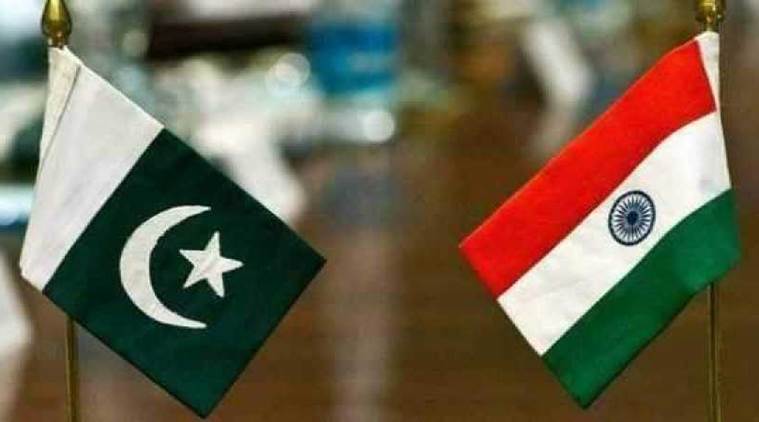The Islamic Republic next door has for most of its existence been in the iron stranglehold of military men, mullahs and bureaucrats. This is the ‘deep state’. It is this uber-government that has always got rid of political leaders who say nice things about India and those who dare to talk about peace.
One thing that the International Court of Justice’s judgment on Kulbhushan Jadhav proved conclusively is that Pakistanis and Indians no longer understand each other at all. The cacophony that passed for debate on our news channels last week proved this. Pakistani journalists and security experts were invited on Indian TV debates. They were hostile and belligerent and the Indians replied with hostility and belligerence. Much was lost in noise and fury but one odd argument that came through was that the Pakistani media believes that India is governed by a ‘deep state’ just like Pakistan. A Pakistani woman journalist said this on Aaj Tak and I paid special attention because I have heard it said before by Pakistani friends.
Most Indians have not the faintest idea what a ‘deep state’ means, so let me explain. The Islamic Republic next door has for most of its existence been in the iron stranglehold of military men, mullahs and bureaucrats. This is the ‘deep state’. It is this uber-government that has always got rid of political leaders who say nice things about India and those who dare to talk about peace. Nawaz Sharif, originally a creation of the military, was dumped when he tried to respond with friendship to Narendra Modi’s overtures in the summer of 2014.
Sharif had also responded with friendship when Atal Bihari Vajpayee drove across the Wagah border in that gilded bus on a sunny February afternoon 20 years ago. There was so much hope in the air that in Lahore that night I met old friends who truly believed that there would now be peace at last. They did not know that the ‘deep state’ was busy planning the intrusion in Kargil that led to war months later.
The deep state has always been powerful but I can remember a time in the early Eighties, when I first visited Pakistan, when it was not so totally in control. It was a time when it was possible for political leaders like Benazir Bhutto to rise and for semi-real elections to happen. Pakistan’s moment of limited democracy lasted long enough for many Indian foreign policy and defence experts to be seduced into believing that by strengthening the hands of elected prime ministers, peace would one day come.
Images come to mind of Rajiv Gandhi and Benazir Bhutto smiling happily at each other as if between them they could change the destiny of the sub-continent. Some idiots among Rajiv’s closest advisors actually went around crowing about the imminent possibility of peace in the corridors of South Block. Peace may not have come, peace may never have been possible, but we could at least dream of it. The one single incident that changed everything was 26/11. It changed the way Indians saw Pakistan. And, a real bitterness began to set in, because despite ample proof being provided to Pakistan, not just by India but by international agencies, Pakistan has so far refused to accept its responsibility in the attack.
In the debate last week, when the Pakistani journalist implied that 26/11 was an attack engineered by India’s ‘deep state’, I was not surprised to find that she was backed up by other Pakistani journalists. Not surprised because after this terrible event, whenever I have met Pakistanis in foreign lands and in Pakistan, they have all said that they did not believe that Pakistanis could do such a thing. Not even after David Headley was arrested in the United States and gave full details of the planning and execution of the worst act of jihadi terrorism on Indian soil, were ordinary Pakistanis convinced.
This is because they believe that a ‘deep state’ exists in India capable of killing Indians just to malign Pakistan. This belief has been strengthened by Congress leaders having gone out of their way to encourage the tiny handful of Indian Muslims who believe that
26/11 was the work of the RSS. Since the election results, the new ‘secular’ myth that is carefully and deliberately being created is that Narendra Modi is a pawn of the RSS. And, that it is the RSS that is the real ‘deep state’. It is unfortunate that even Rahul Gandhi seems to believe this.
The RSS has been around a very long time and has helped the BJP at election time, but without Narendra Modi, it could never have delivered 300 seats in the Lok Sabha. There is evidence of the RSS interfering in some ministries like education and culture. But, it cannot by even the wildest stretch of Pakistani imagination be described as India’s deep state.
For now our biggest problem is that our political leaders do not even speak the same language any more. After the ICJ judgment, Narendra Modi tweeted happily that it was a victory for India and Imran Khan that it was a victory for Pakistan. Ahead lies a nowhere road.
Source: Read Full Article


